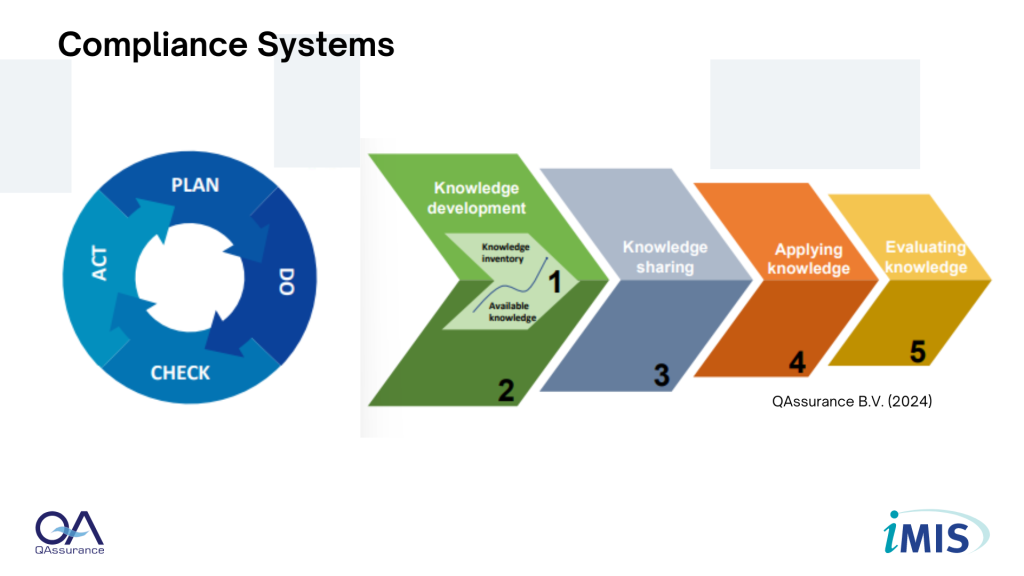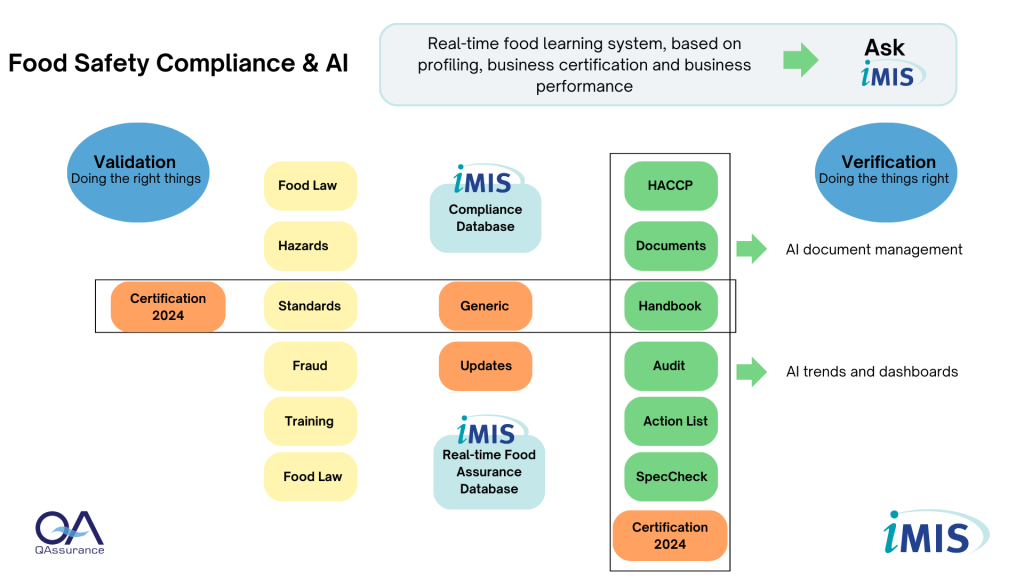Introduction
The current landscape of food safety certifications like BRCGS, IFS, and FSSC 22000 primarily focuses on validation – ensuring that companies comply with specific requirements and checklists. While this provides some assurance, it overemphasizes paperwork and neglects the actual effectiveness of food safety systems.
This shift towards validation has inadvertently created a gap between certification and verification. As a result, we’re seeing more recalls, increased audit costs, and a growing distrust in the certification process itself. The solution lies in a return to verification, and real-time food safety assurance may be the key to bridging this gap.
Drawbacks of Compliance Systems Based only on Validation
The evolution of food safety standards has led to an increased emphasis on documentation and compliance with specific requirements. While this is important, it has come at the expense of verifying whether the Hazard Analysis and Critical Control Points (HACCP) system is truly effective in preventing hazards.
The consequences of this validation-focused approach are significant:
- Increased Recalls – Despite certifications, food safety incidents and recalls continue to occur, indicating that compliance doesn’t always equate to effective food safety management.
- Rising Audit Costs – Audits have become more extensive and expensive, with additional requirements and unannounced audit days adding to the financial burden on companies.
- Loss of Trust – The need for extra unannounced audits signals a lack of trust in the initial certification process itself.
The Need for Verification and Real-Time Assurance
Effective Food Safety Management and compliance hinge on the Deming Cycle (Plan-Do-Check-Act), which emphasizes the practical application of knowledge (1). To rebuild trust in food safety, verification must be prioritized. This involves ensuring that Hazard Analysis and Critical Control Points (HACCP) systems are not merely documented, but actively implemented and maintained daily.
Real-time food safety assurance technologies offer a promising solution:
- Continuous Monitoring: These systems allow for continuous monitoring of critical control points, providing real-time data on food safety performance.
- Data-Driven Insights: Real-time data can be used to gain insights into trends, identify areas for improvement, and make informed decisions about food safety management.

Benefits for Auditors and Food Companies
A shift towards real-time verification would not only improve food safety but also benefit both auditors and food companies:
- Auditors: Auditors can focus on assessing a company’s food safety knowledge and culture rather than just checking boxes. This would make their job more meaningful and allow them to leverage their expertise more effectively.
- Food Companies: By embracing real-time assurance, companies can demonstrate a commitment to proactive food safety management. This can lead to improved brand reputation, reduced risk of recalls, and a more efficient and effective food safety system.
The iMIS Food method
iMIS Food is QAssurance’s comprehensive software platform designed to empower food businesses to manage their food safety processes effectively. It offers a knowledge-based system with real-time updates, ensuring compliance with EU regulations and standards. With features like audit management, incident reporting, and offline functionality, iMIS Food provides a user-friendly solution for maintaining food safety and quality throughout the supply chain.
Recognizing that many AI tools offer data without guidance, QAssurance’s founder Cornelis van Elst within the TITAN Project, is developing an AI solution that not only analyzes but also provides actionable insights and recommendations tailored to each business.

The TITAN Project: Improving Food Safety
QAssurance’s Ask iMIS project, sparked by the groundbreaking, EU-funded TITAN Project, aims to revolutionize food safety by combining AI and knowledge. As a testament to the innovative solutions fostered by TITAN, QAssurance recently participated in a webinar alongside other project partners, showcasing the Ask iMIS platform and its potential to transform the industry. Ask iMIS is expected to come to life by 2025.
Food Safety Compliance Scorecard
Verification is not just about external audits; it starts with self-assessment and a strong Food Safety Culture. Companies must recognize their ultimate responsibility for food safety and proactively understand the strengths and weaknesses within their culture.
Ask yourself:
- How would you rate your Food Safety Culture?
- Are there gaps in knowledge or areas where improvement is needed?
Taking this introspective approach is crucial for identifying vulnerabilities and preventing food safety incidents before they occur. With the Food Safety Compliance scorecard, you can identify your weaknesses and perform the right actions.
Related articles to Real-Time Assurance for Food Safety: From Validation to Verification
Many customers and visitors to this page 'Real-Time Assurance for Food Safety: From Validation to Verification' also viewed the articles and manuals listed below:
